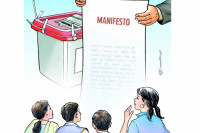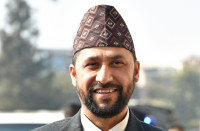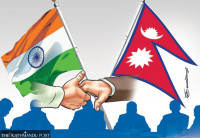National
Diverse Parliament’s first sitting stresses a range of issues
Three political parties—Rastriya Swatantra Party, Janamat Party and Nagarik Unmukti Party—reached the parliament for the first time.
Nishan Khatiwada
Newly-elected Nepal’s House of Representatives sat for the first time on Monday.
The top leaders of both the traditional and new political parties stressed a range of issues while addressing the first sitting of the new Parliament, which is diverse with lawmakers from different walks of life, various ethnic communities, different professional backgrounds, and a large number of newbies.
Three political parties namely the Rastriya Swatantra Party, Janamat Party and Nagarik Unmukti Party reached the parliament for the first time which has further added to the diversity of the federal legislature.
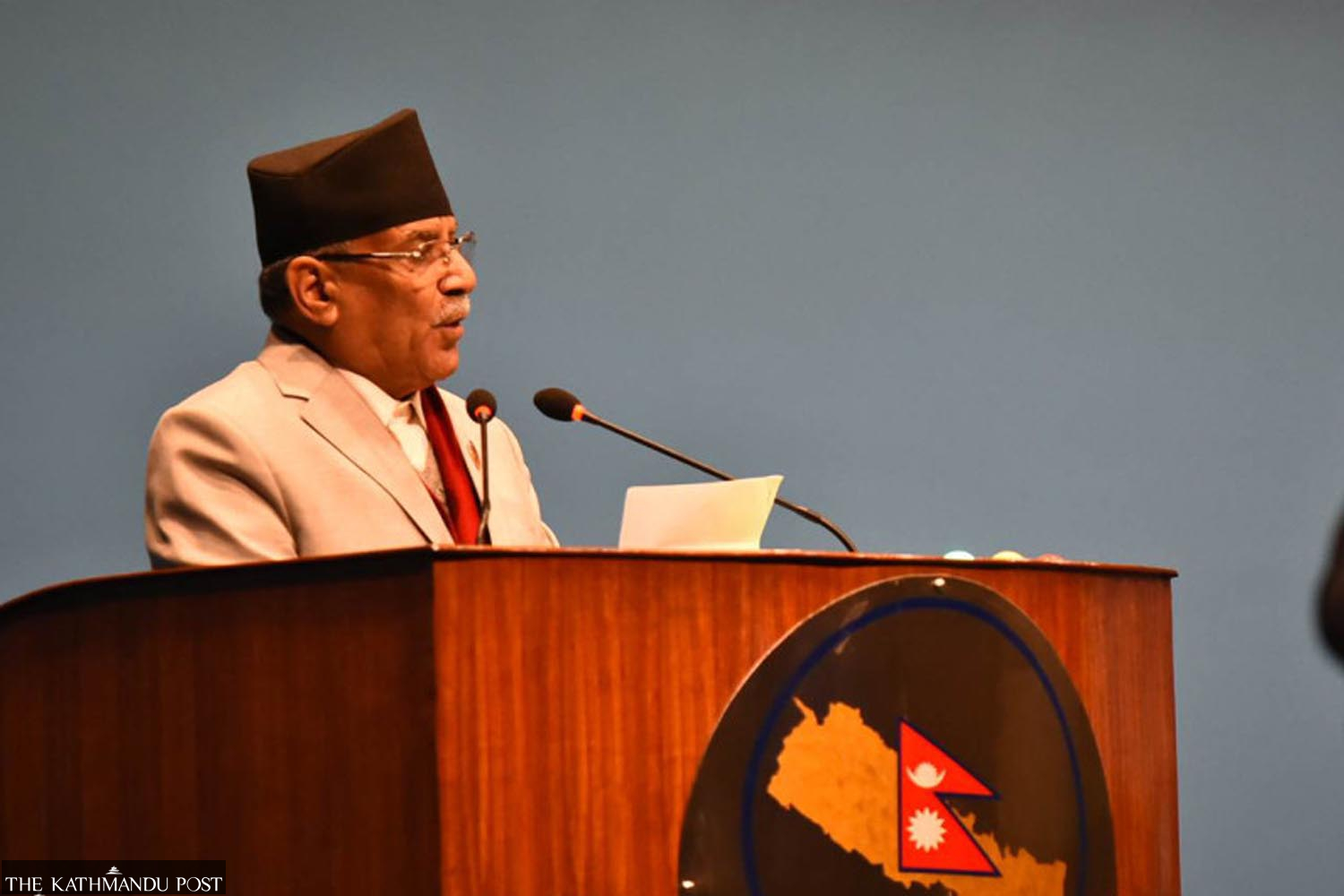
“This Parliament session is going to be a litmus test for us; whether we will be able to provide good governance and bring meaningful changes in the public’s lives,” said prime minister and CPN (Maoist Centre) chair Pushpa Kamal Dahal, addressing the Parliament.
Dahal said the new parties are new assets of the Parliament. “Without jealousy, I want to say it is a victory of democracy and citizen sovereignty,” he said.
On the other hand, former prime minister and Nepali Congress president Sher Bahadur Deuba sounded calm while making his remarks in the Parliament’s meeting. Congratulating prime minister Dahal and the newly-elected lawmakers, he said, “The public has expectations from this House of Representatives.”
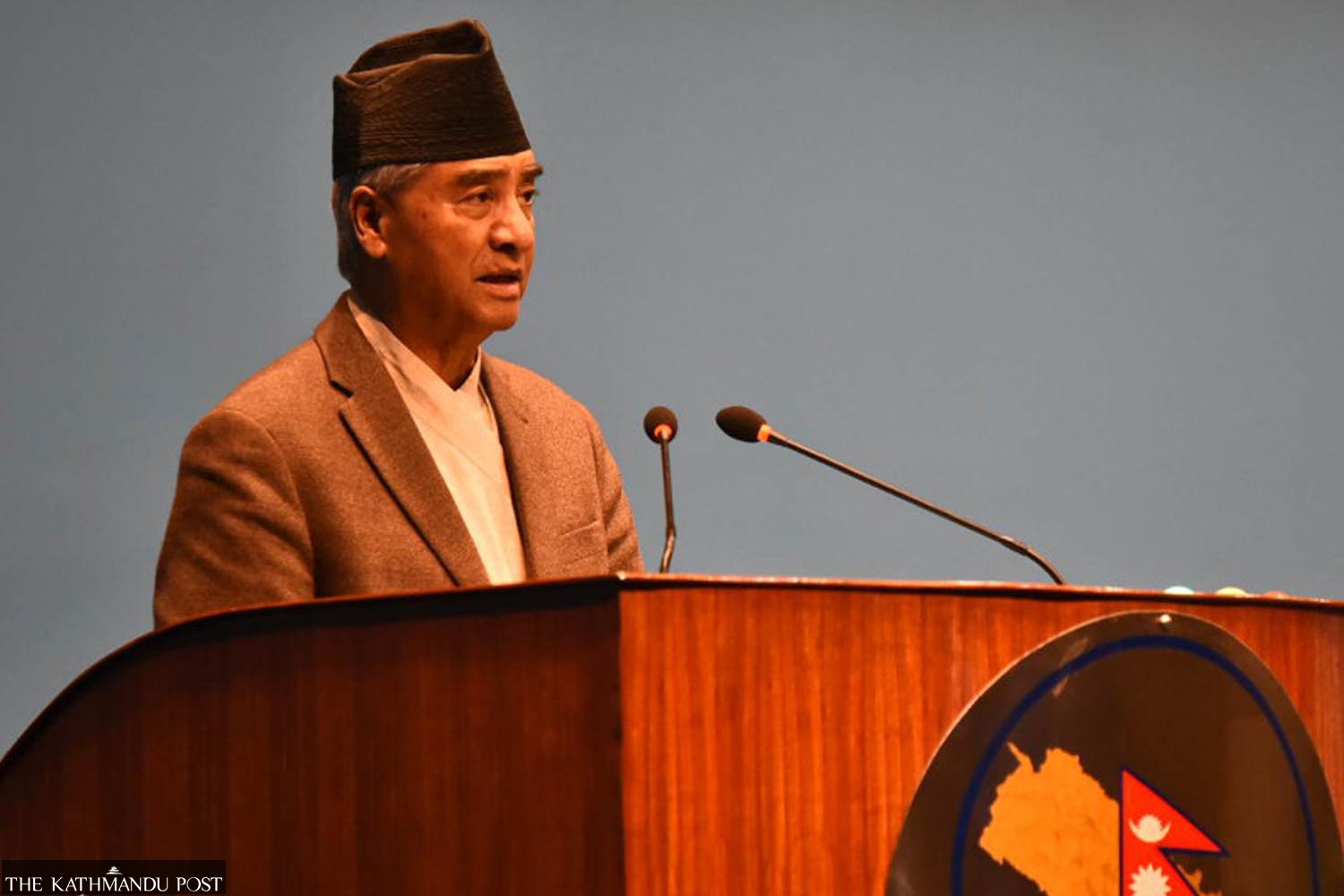
Deuba asserted the Congress will play a constructive role in the legislature.
Following his lashing out at the Maoist Centre and UML for their ‘last minute maneuvering to betray him’ in the recent past, his tone at the Parliament came as a surprise. The formation of the new government under the Nepali Congress-led alliance was almost certain until the the Maoist Centre pulled out at the eleventh hour.
Meanwhile, CPN-UML chair KP Sharma Oli appealed all parties to work together rather than wheeling and dealing to overthrow the sitting government.
“Tomorrow [Tuesday], the PM is taking the vote of confidence. I am sure he will win it,” he said. “Yet, I want him to remember that there are challenges.”
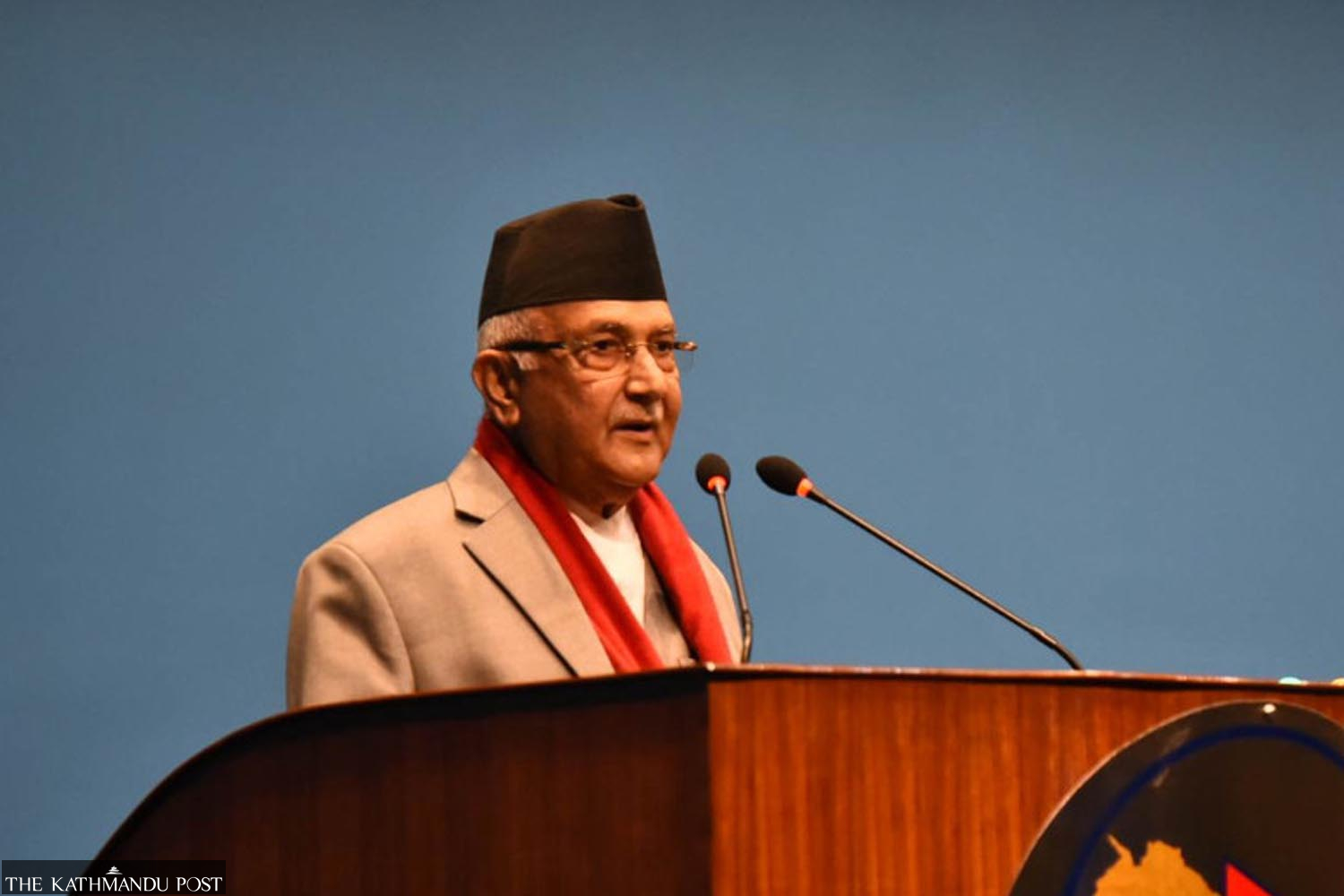
Deuba in passing touched on the House dissolution fiasco during Oli’s tenure. Deuba mentioned ‘the unanticipated twists and turns of political events’ 18 months ago in his remarks.
Oli; however, defended his move saying that the House dissolution was not a regression. “There was such a hullabaloo in Nepal on ‘whether the House dissolution is a regression’. How many times has the United Kingdom seen such regressions then?” questioned Oli.
The newly-formed Rastriya Swatantra Party chair and Home Minister Rabi Lamichhane underscored specific issues while addressing the Parliament. “The old files related to corruption should be reopened now,” he said. He also pledged to not get involved in malpractices during his tenure; to not let his party’s lawmakers abuse their authority and requested fellow lawmakers not to ask him to influence the investigations against corrupt individuals and criminals.
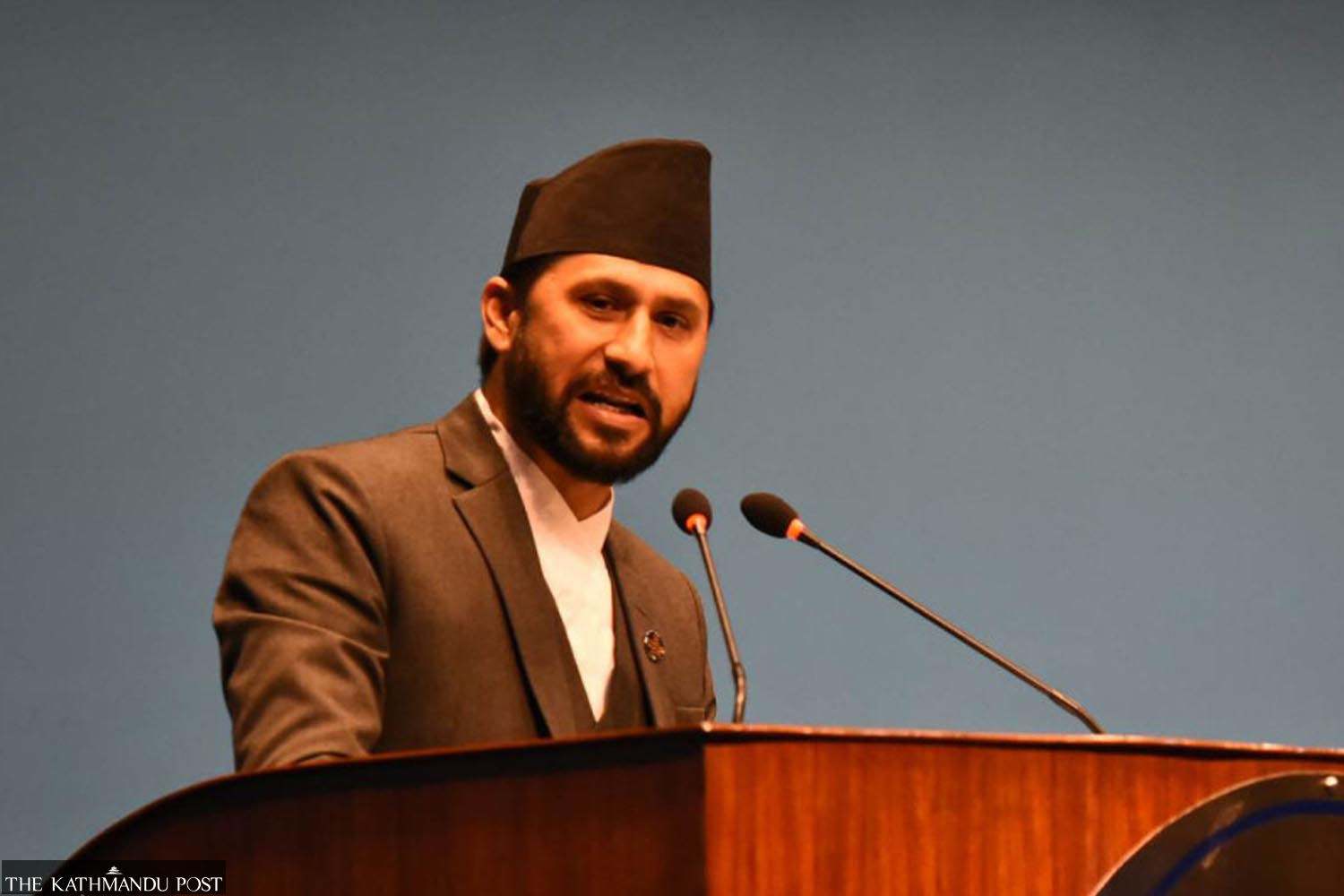
“Emergence of a new party may not be a big matter in Nepal’s political history. But the way we have received public trust is a sound of a bell hinting that the general public rallying for change,” Lamichhane said while speaking at the Parliament meeting for the first time since his party emerged as a significant force in Nepali politics in the November polls.
New party in the Parliament Janamat Party’s chair CK Raut, at first, thanked the public for their votes courtesy of which he was speaking at the Parliament today, where once even taking his name was prohibited. “The prime minister, while welcoming us, said we have the passion to deliver. But we not only have the passion but also respect for our senior leaders.”
Raut underscored the importance of federalism in protecting the country’s integrity. “I am living evidence to prove that for the country’s integrity, federalism is a must,” he said.
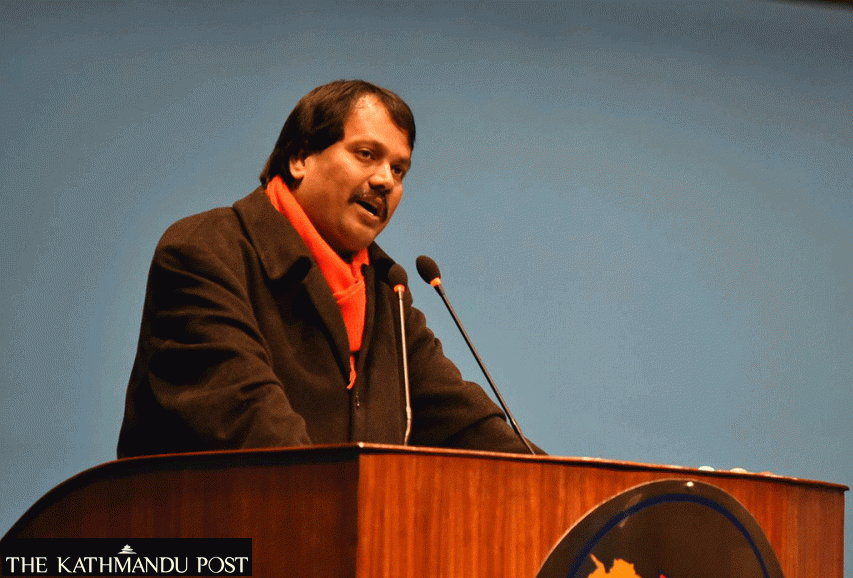
The Janamat Party has already joined the government, with vice-chair Abdul Khan as Industry and Commerce Minister.
CPN (Unified Socialist) chair Madhav Kumar Nepal stressed that they should move forward by learning from past incidents. “Everyone expects political stability in our country. We don’t want the government to change frequently in Nepal,” he said.
Nepal said even the prime minister should abide by the constitution.
Nagarik Unmukti Party chair Ranjita Shrestha’s address was mostly focussed on Resham Chaudhary and the cases against the alleged criminals of the 2015 Tikapur incident. She asked for justice, citing that Deuba, Oli, Prachanda and even Lamichhane had already termed Chaudhary innocent. “The Tikapur incident did not occur in a closed room or a cave,” she said. “The accused were not even present at the incident site, but they have been in jail for five years now.”
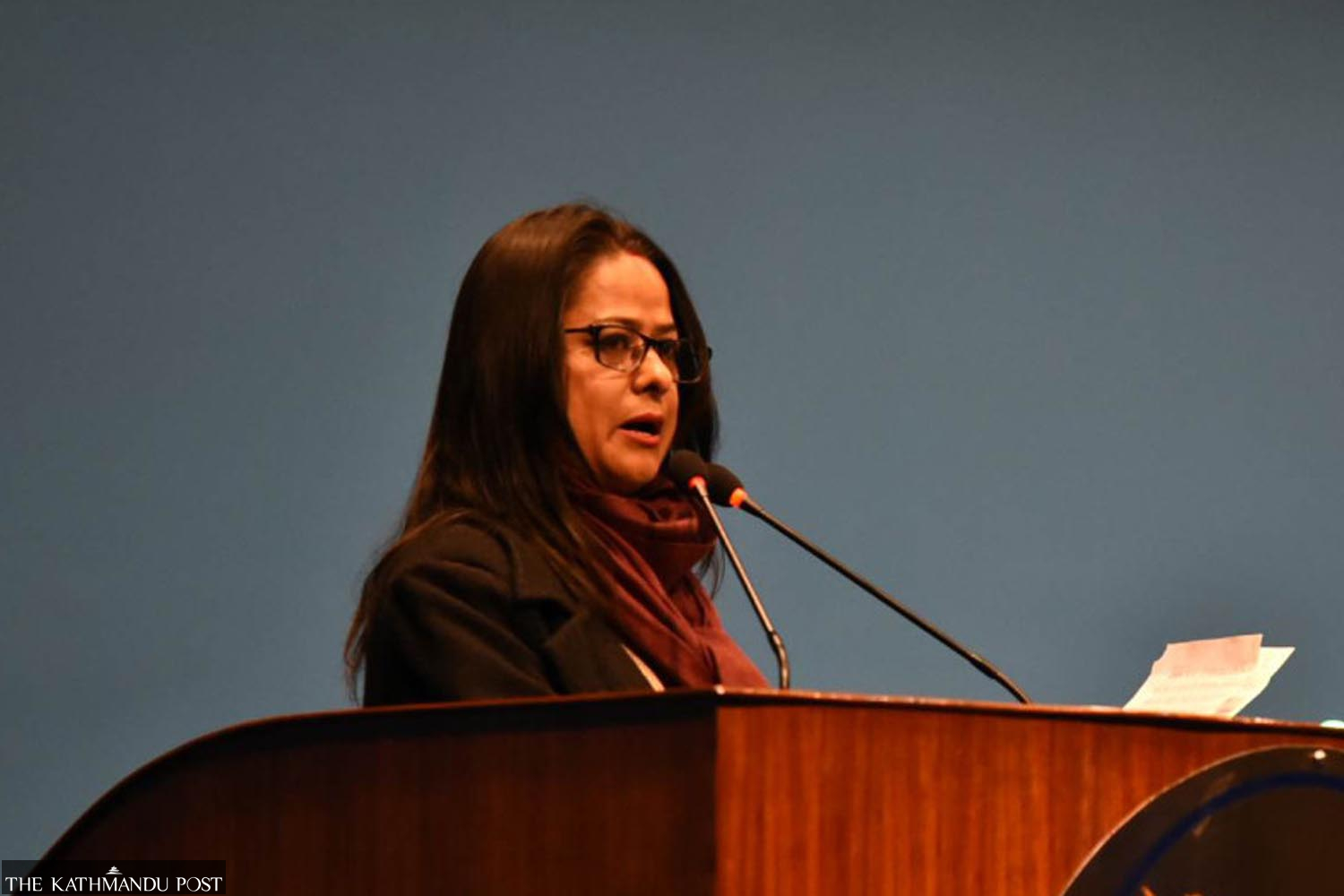
Ranjita’s husband Resham Chaudhary has been serving a jail term in connection to the Tikapur incident where nine people were killed in a clash.
Lawmakers from Nagarik Unmukti Party and CPN (Unified Socialist) were on the opposition benches in the parliament. The former has already supported the Dahal-led government but hasn’t joined the Cabinet.
Janata Samajbadi Party’s parliamentary leader Ram Sahaya Prasad Yadav focussed on the implementation of the Constitution which ‘has not been done effectively yet’. He said it is a pity that the nation has failed to devolve the rights to the provinces and therefore the provinces are debilitating.
Yadav asserted that laws should be formulated without any further delay to empower the provinces for effective implementation of the federal system.




 11.12°C Kathmandu
11.12°C Kathmandu

